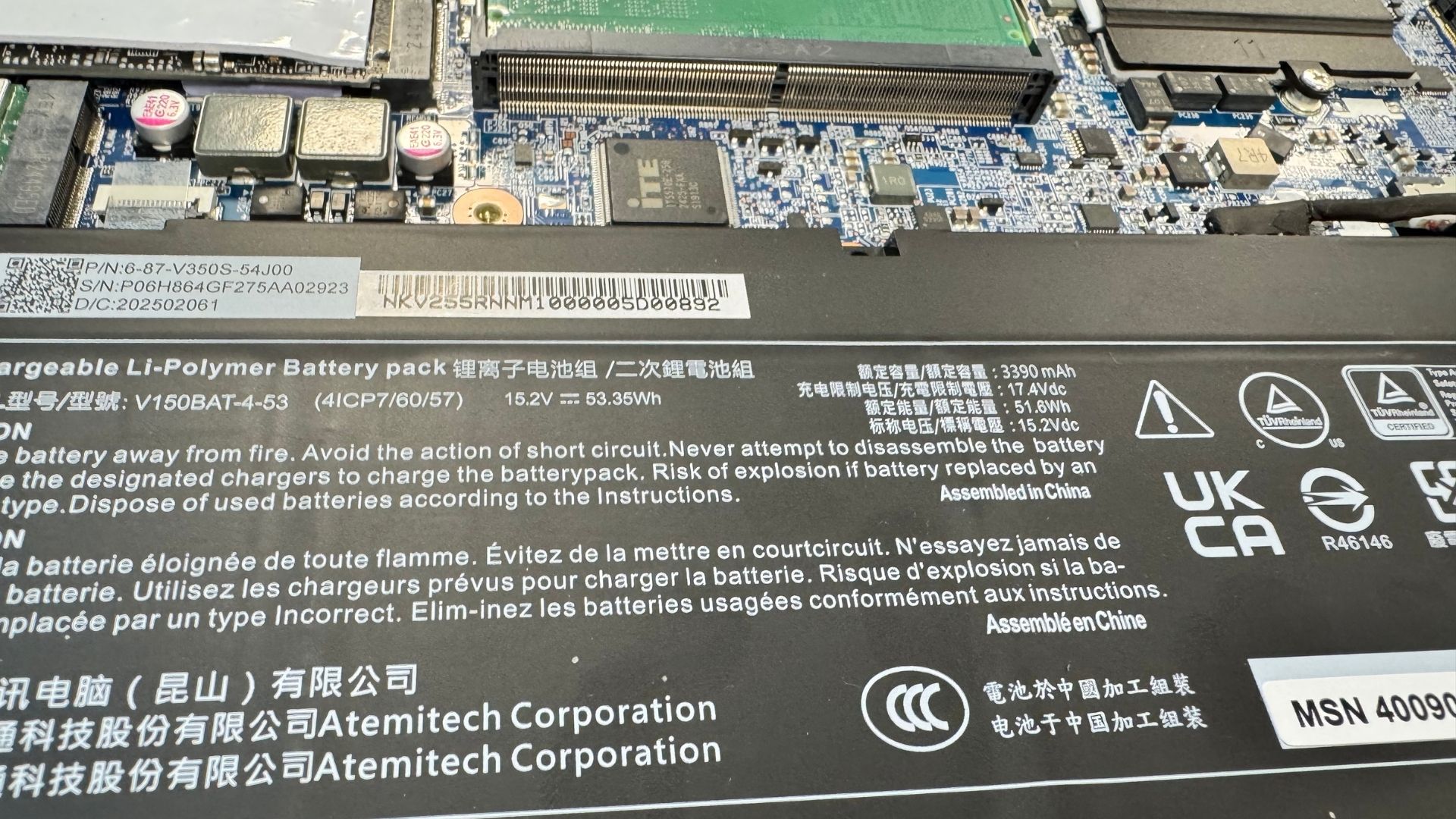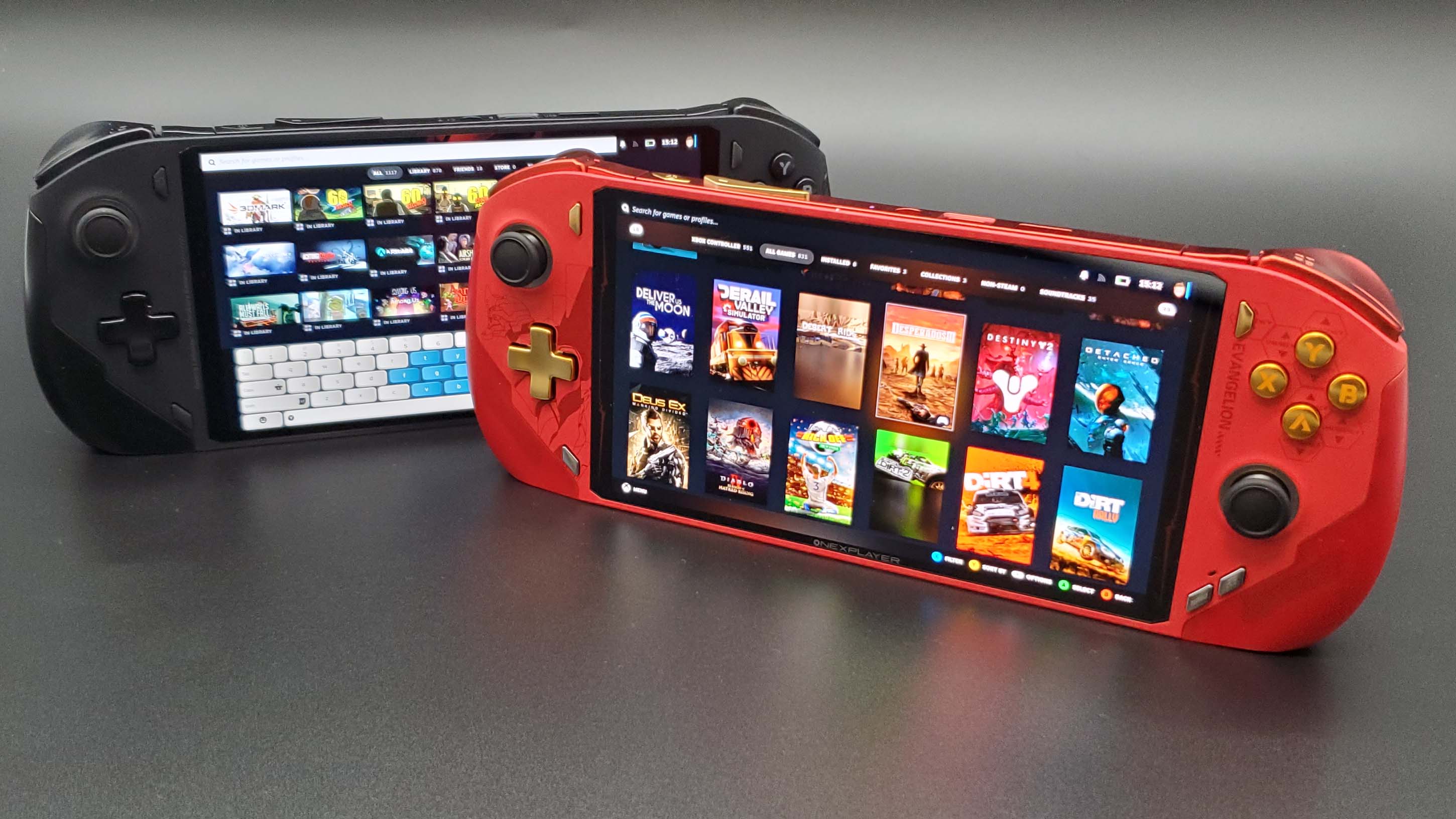New MIT research opens the door to faster-charging and longer-lasting batteries, and it could be implemented right away
This isn't some lab-only stuff, it's the real deal.

Keep up to date with the most important stories and the best deals, as picked by the PC Gamer team.
You are now subscribed
Your newsletter sign-up was successful
Want to add more newsletters?

Every Friday
GamesRadar+
Your weekly update on everything you could ever want to know about the games you already love, games we know you're going to love in the near future, and tales from the communities that surround them.

Every Thursday
GTA 6 O'clock
Our special GTA 6 newsletter, with breaking news, insider info, and rumor analysis from the award-winning GTA 6 O'clock experts.

Every Friday
Knowledge
From the creators of Edge: A weekly videogame industry newsletter with analysis from expert writers, guidance from professionals, and insight into what's on the horizon.

Every Thursday
The Setup
Hardware nerds unite, sign up to our free tech newsletter for a weekly digest of the hottest new tech, the latest gadgets on the test bench, and much more.

Every Wednesday
Switch 2 Spotlight
Sign up to our new Switch 2 newsletter, where we bring you the latest talking points on Nintendo's new console each week, bring you up to date on the news, and recommend what games to play.

Every Saturday
The Watchlist
Subscribe for a weekly digest of the movie and TV news that matters, direct to your inbox. From first-look trailers, interviews, reviews and explainers, we've got you covered.

Once a month
SFX
Get sneak previews, exclusive competitions and details of special events each month!
Whether it's a handheld PC, gaming laptop, or something much larger like a car, we all want batteries that can charge much quicker, store more energy, and last longer before wearing out. Until now, most advances in these areas have been discovered through trial and error, but a newly developed mathematical model, backed by experimental evidence, could be used to steer engineers in the right direction for the next generation of batteries.
That's according to the Massachusetts Institute of Technology (MIT), in a report on research carried out by a team of engineers, mathematicians, and material scientists. Specifically, the study investigated the process of lithium-ion intercalation, the electrochemical schenanigans that take place in the batteries we use in watches, phones, and pretty much anything these days.
When you charge up the batteries in such devices, lithium ions are driven from an electrolytic solution and jammed into a solid electrode by a voltage source. This process has been intensively studied over the years, and battery designers have typically resorted to using the Butler-Volmer (BV) equation to predict the behaviour of lithium-ion cells.
However, the BV formula is far from perfect, and the discrepancies between that model's outputs and what's seen in reality mean that engineers have needed to rely on lots of experimental trial and error to get the required results. To that end, MIT's researchers started by examining over 50 different combinations of electrolytes and electrodes to build up a database of figures that could be analysed.
From this data, the team created a mathematical model based on coupled ion-electron transfer theory (pdf warning), which predicts the electrochemical reaction far better than the BV formula. And because it matches reality so closely, battery companies can use the model to fine-tune their designs to improve the charging speed of the cells, as well as help to reduce how quickly the cells degrade.

It's fair to say that a lot of experimental research often takes a long time to eventually bear fruit at the consumer level, either because it requires a manufacturing process that's yet to be cost-effective or because the discovery only works within very narrow constraints.
This research, however, is different because none of that applies here: it's a framework from which current designs can be tweaked, rather than requiring a wholesale change in direction. It's also been verified through further experimentation, though I have no doubt the scientific community will want to investigate the claims and the model further before agreeing that coupled ion-electron transfer theory is the way to go.
Keep up to date with the most important stories and the best deals, as picked by the PC Gamer team.
For me, the best part of all of this is that any battery company will be able to look at the researcher's findings and start implementing the model now, not years down the road. It might not result in a quantum leap in charging rates or battery lifespan, but any improvements will surely be welcomed by any tech user.

1. Best overall:
Razer Blade 16 (2025)
2. Best budget:
Gigabyte G6X
3. Best 14-inch:
Razer Blade 14 (2025)
4. Best mid-range:
MSI Vector 16 HX AI
5. Best high-performance:
Lenovo Legion Pro 7i Gen 10
6. Best 17-inch:
Gigabyte Aorus 17X

Nick, gaming, and computers all first met in the early 1980s. After leaving university, he became a physics and IT teacher and started writing about tech in the late 1990s. That resulted in him working with MadOnion to write the help files for 3DMark and PCMark. After a short stint working at Beyond3D.com, Nick joined Futuremark (MadOnion rebranded) full-time, as editor-in-chief for its PC gaming section, YouGamers. After the site shutdown, he became an engineering and computing lecturer for many years, but missed the writing bug. Cue four years at TechSpot.com covering everything and anything to do with tech and PCs. He freely admits to being far too obsessed with GPUs and open-world grindy RPGs, but who isn't these days?
You must confirm your public display name before commenting
Please logout and then login again, you will then be prompted to enter your display name.

